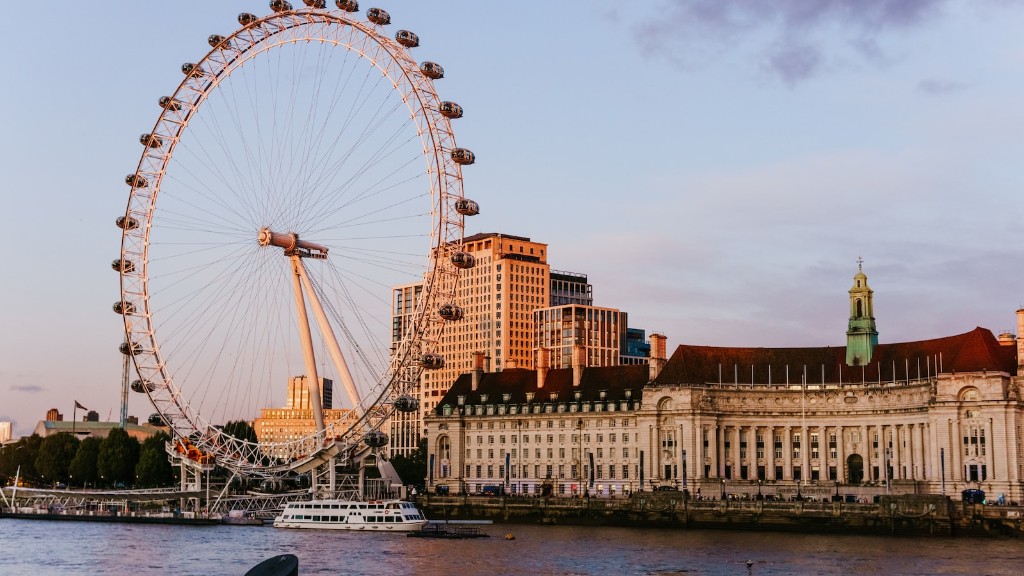It is commonly assumed that Australia and New Zealand were penal colonies of Great Britain. In reality, the situation was far more nuanced as both countries had a complex relationship with Great Britain and the British Empire. This article will explore the unique histories and colonial associations of Australia and New Zealand while examining the implications of Great Britain’s influence on both countries.
In 1788, the British established a penal colony in New South Wales, Australia when Captain Arthur Phillip and the 11-ship First Fleet arrived in Botany Bay. This development meant that the first British settlers in Australia were criminals, and due to lack of infrastructure, the colony was later used to hold other convicts from around the British Empire. Between 1788 and 1868, nearly 161,700 convicts were transported from England, Ireland and even Scotland to these penal colonies in Australia. Although the colonists were initially just released convicts, they eventually established themselves as British citizens.
At the same time, New Zealand was part of the British Empire and received trade, military and economic support from the British. However, it did not experience the same degree of direct colonization as Australia. British influence in New Zealand was mostly due to its strategic position at the time, and its importance for British naval navigation during the 19th century.
The effects of the convict transportation system were far-reaching. It generated an influx of people into New South Wales from a variety of backgrounds, including free settlers and convicts. This had a huge impact on the social landscape of the region as it brought together different people, cultures and ideas. It also allowed for the development of new agricultural practices and industries and helped to open up new markets in both Australia and New Zealand. The British influence in the region also led to increased administrative and military oversight.
Although both countries gained independence from Great Britain in the late 19th and early 20th century, the British Empire still had a lasting impact on the development of both countries. This is evidenced in the popular culture, values and politics, as well as in the languages both countries adopted.
The British Empire also influenced the economic policies of both countries. The British advocated for free trade and removed trade barriers between the two countries, which helped to develop robust economic systems. The British also invested heavily in infrastructure in both countries, including roads, ports, railways and factories.
Overall, the British Empire had an impact on both Australia and New Zealand, although their colonial associations were very different. Australia was a direct part of the British Empire and was heavily influenced by its policies, whereas New Zealand’s relationship with Great Britain was mainly based on strategic considerations.
Economic implications of Great Britain’s association with Australia and New Zealand
The British presence in both Australia and New Zealand had lasting economic implications. British investments in infrastructure played a key role in the development of the local economy in both countries. The opening of new markets and the removal of trade barriers allowed for increased trade between the two countries, creating an interconnected economic system.
The arrival of British settlers and convicts in Australia had an immense impact on the economy of the region. The influx of people sparked an agricultural and industrial revolution. New methods of farming and the development of industries such as wool, timber and gold mining meant that the local economy was transformed.
The British also encouraged the adoption of free trade which allowed both countries to benefit from increased trade opportunities. The two countries were able to benefit from access to new markets and the British were able to increase their export revenue. This allowed both countries to expand their economic activity and grow their revenue.
The British Played An Important role in the development of the banking systems in both countries. The establishment of banks such as the Bank of New South Wales and the Reserve Bank of New Zealand provided the necessary capital to fuel the expansion of both countries’ economies.
In addition, the British encouraged the adoption of modern legal systems. The establishment of laws and regulations provided a framework for the growth of the economies in both countries. This helped to facilitate business transactions and created a stable business environment.
The Cultural influences of British Empire on Australia and New Zealand
The British presence in both Australia and New Zealand had a lasting impact on the cultures of both countries. The arrival of British settlers and convicts in Australia influenced the language, food, music, and art of the region. English became the primary language spoken in both countries, and English cultural values such as honesty and hard work were embraced by the people.
The introduction of British cuisines such as roast beef and Yorkshire pudding had a profound impact on the diet of the people. The British also introduced a number of musical instruments and styles, such as the harp, violin, and bagpipes. This led to the development of a unique musical style, which is now known as “British Colonial Music”.
British-style art also played a major role in the development of the culture in both countries. British painters such as Sir Joshua Reynolds introduced new art styles to the region. This allowed for the development of a new artistic style, which is now known as the “Pacific School” of art.
The influence of the British Empire on Australia and New Zealand was extensive and far-reaching. The introduction of new languages, cuisines, music, and art transformed the culture of both countries, while the British presence in both countries led to economic development and the establishment of modern legal systems.
Political implications of British influence in Australia and New Zealand
The British also had a strong influence on the politics of both countries. During the 19th century, the British Empire was a major power in the region and its presence in both countries influenced the political development of both countries.
The British introduced democracy to both countries which helped to establish stable democratic governments. They introduced a number of laws and regulations which served to protect the rights of citizens and guaranteed equal access to government services.
The British also helped to develop both countries’ judiciary systems by introducing legal codes and due process of law. This was important for both countries as it provided a fair and impartial system for resolving disputes.
The British also helped to unite both countries by creating common institutions such as the Australian and New Zealand governments. This helped to create a bond between the two countries and increased cooperation between them.
The British presence in both countries also led to increased military presence. This ensured the protection of both countries from external forces and helped to maintain peace and stability in the region.
Conclusion
The influence of the British Empire on Australia and New Zealand was extensive and far-reaching. The arrival of British settlers and convicts in Australia had a huge impact on the social landscape and economy of the region. New Zealand experienced a more indirect influence, mainly due to its strategic importance in the 19th century.
The British Empire influenced both countries culturally, economically, and politically, with its lasting legacy still visible today. They introduced new languages, cuisines, music, and art, as well as laws and regulations that provided a legal framework for economic and political development. The British also had a major impact on the military and diplomatic relations of both countries.





